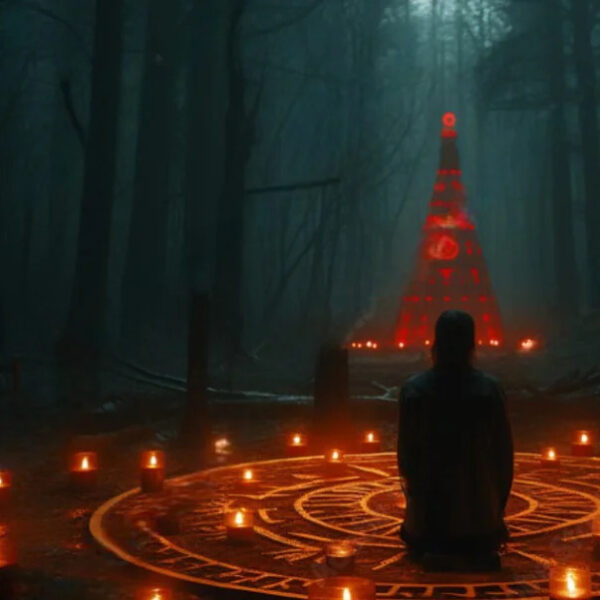The Impact of Cultural Beliefs on Vashikaran Practices
Vashikaran is a spiritual practice that has long been embedded in Indian culture, with roots that trace back to ancient times. The belief in the power of mantras, rituals, and the subtle manipulation of energies has been passed down through generations. Over the years, the practice has evolved, and its applications have expanded beyond what was originally intended. However, the influence of cultural beliefs continues to shape Vashikaran techniques, determining how they are practiced and understood in different parts of the world.
In India, Vashikaran is often seen as a way to influence others, achieve personal goals, and maintain control over challenging situations. It draws on the belief that everything in the universe is interconnected through energy. But how do cultural beliefs impact the practice of Vashikaran? In this article, we will explore how cultural context, traditions, and local beliefs shape Vashikaran practices and how people seek help from specialists in different regions.
Cultural Beliefs and Vashikaran Practices
Cultural beliefs play a major role in how spiritual practices like Vashikaran are approached. These beliefs influence not only the rituals performed but also the understanding of energy dynamics, intentions, and outcomes.
In many parts of India, Vashikaran is traditionally viewed as a form of spiritual intervention to gain control over an individual’s emotions or behavior, whether for personal gain, relationship improvement, or business success. The practice itself is rooted in the notion that everything in the universe is governed by certain laws of energy, and by channeling specific vibrations or energies, one can influence outcomes. While the core principles of Vashikaran remain the same, local beliefs and customs shape how these techniques are applied.
For example, a Vashikaran specialist in Noida might incorporate local rituals and belief systems that align with the cultural values of that region. The specialist’s approach may differ slightly from someone practicing in a culturally different region, such as a Vashikaran specialist in Ludhiana, where the practice may involve other specific mantras, deities, or rituals that resonate more strongly with the local spiritual framework.
The Role of Regional Traditions
Cultural traditions greatly influence how individuals seek help from a Vashikaran specialist in Bhopal or other areas. In regions where traditions of astrology, tantra, and Ayurveda are highly regarded, Vashikaran may be integrated with other spiritual practices, making it a holistic experience for the individual. The belief in supernatural forces, astrological influences, and the connection between celestial bodies and human behavior all play a part in how people perceive and use Vashikaran.
For instance, in regions like Faridabad, where people often turn to astrology for guidance, a Vashikaran specialist may combine astrological readings with Vashikaran practices to offer solutions based on planetary positions and their influence on one’s life. Similarly, in areas like Pune, where yoga and spiritual disciplines are a part of the cultural fabric, Vashikaran may be practiced in conjunction with mindfulness or meditation practices to align the mind and body for better results.
Influence of Religious Beliefs
Religious beliefs are also closely intertwined with the practice of Vashikaran. In regions where Hinduism, Buddhism, and other spiritual paths dominate, Vashikaran often incorporates rituals and deities from those traditions. For example, in cities like Agra, where the influence of Hinduism is strong, rituals may involve invoking specific gods and goddesses to bring about desired changes. This cultural influence shapes the spiritual practices of Vashikaran, adding layers of religious significance and symbolism.
For practitioners who are religiously inclined, the belief in deities like Lord Shiva, Goddess Durga, or other figures in Hindu mythology plays a significant role in guiding the practitioner’s efforts. A Vashikaran specialist in Guwahati may use specific mantras associated with local deities, creating a customized approach based on both the client’s needs and their own religious or spiritual affiliation.
The Power of Mantras and Vibrations
One of the core elements of Vashikaran is the use of specific mantras. These mantras are believed to carry powerful vibrations that can influence the energy around the individual. Different regions may have their own variations of these mantras, often tied to local dialects or cultural influences. This is why the Vashikaran practices of a specialist in Surat may sound different from the mantras used by a practitioner in Hyderabad, even though the essence of the practice remains the same.
The belief in the power of sound vibrations plays an essential role in Vashikaran. The sound frequencies produced by chanting these mantras are said to resonate with the frequencies of the universe, allowing practitioners to influence the flow of energy around them. Cultural beliefs about the importance of sound and vibration contribute to how these mantras are perceived and used in different parts of India.
Modern Interpretations of Vashikaran
In recent years, the practice of Vashikaran has evolved to adapt to modern sensibilities. People from different cultures and backgrounds are now seeking Vashikaran services to address issues in their relationships, careers, and personal growth. While the practice’s origins lie deeply rooted in Indian culture, modern practitioners may incorporate aspects of other global spiritual traditions.
A Vashikaran specialist in Mumbai may combine elements of modern psychology, energy healing, and mindfulness with traditional Vashikaran techniques to offer a more holistic approach. This integration reflects how cultural beliefs can evolve and adapt to new contexts while still maintaining the core practices and principles of Vashikaran.
Conclusion
The impact of cultural beliefs on Vashikaran practices is undeniable. From regional traditions and religious influences to the use of specific mantras and rituals, culture shapes how Vashikaran is practiced across India. Whether you seek help from a Vashikaran specialist in Ahmedabad or a Vashikaran specialist in Delhi, the cultural context in which the practice is performed will shape its application and results.
Ultimately, Vashikaran remains a deeply spiritual practice that is influenced by cultural, regional, and religious factors, and its evolution will continue to reflect the beliefs of the people who turn to it for guidance. Whether you’re seeking help for personal growth, love, or success, the cultural significance of Vashikaran ensures that this ancient practice continues to have a profound impact on the lives of individuals across the world.







